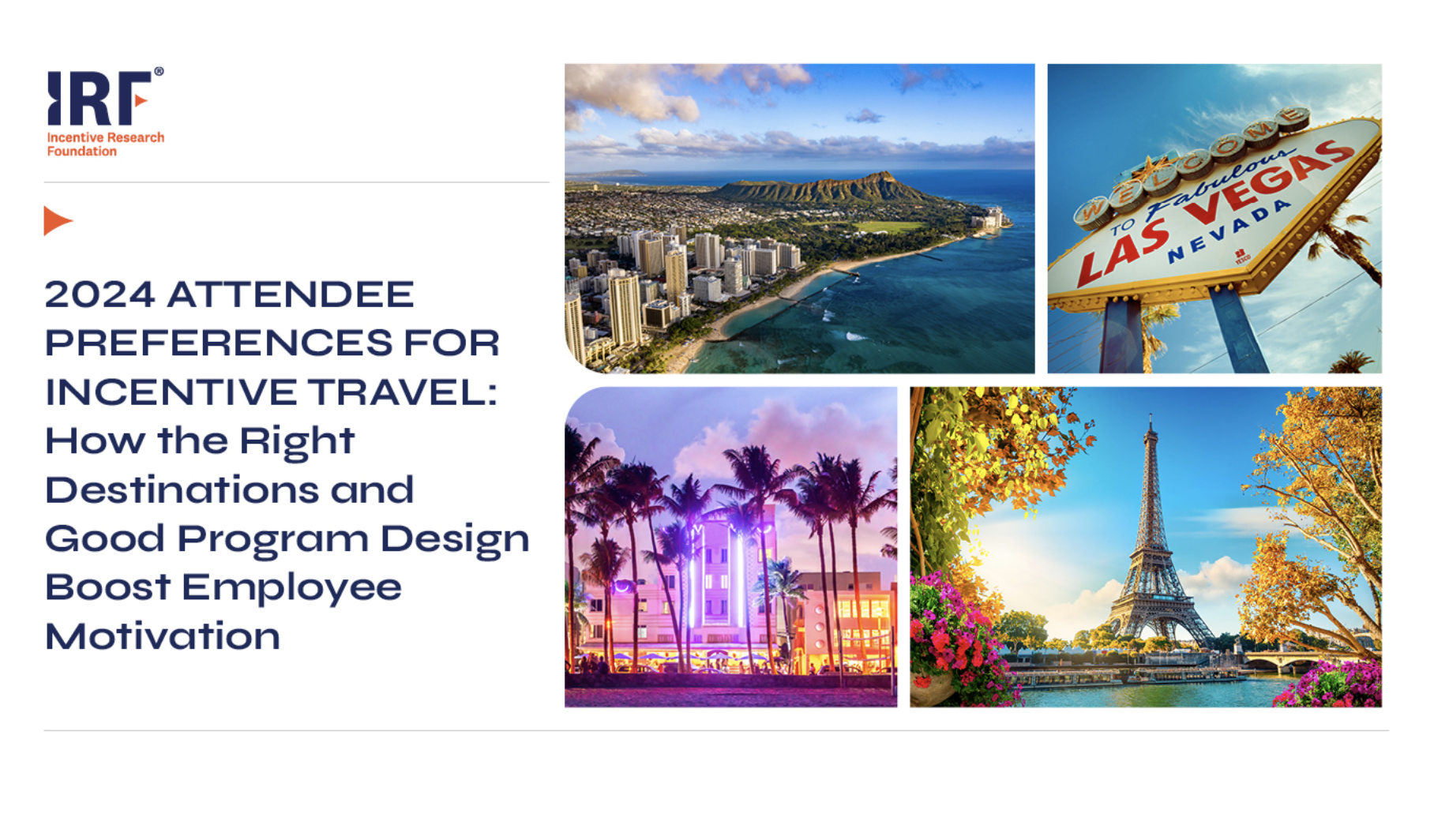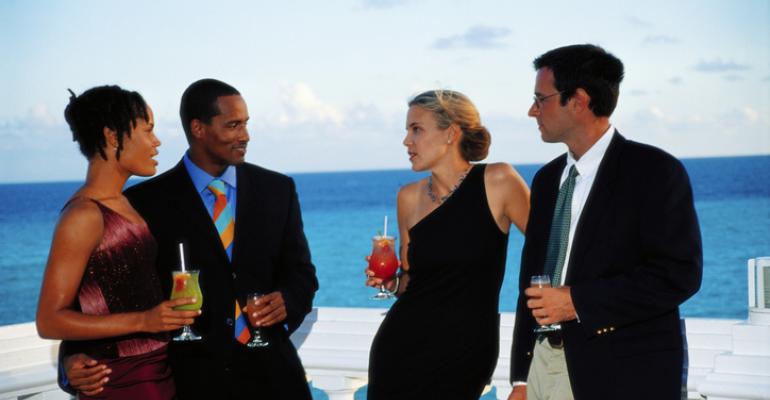According to the recently released 2024 Attendee Preferences for Incentive Travel report, the hot buttons for incentive-program participants this year are cruising, private accommodations, luxury experiences, and merchandise.
Conducted by the Incentive Research Foundation, the survey tapped 400 full-time salespeople between the ages of 23 and 65, with 72 percent having won an incentive travel award sometime in the past three years. A large majority of respondents—69 percent—were in the early half of their careers, ages 23 to 43.
Cruising Ever Higher
The survey results show that cruises continue to gain in popularity in the post-Covid incentive landscape. Specifically, 75 percent of respondents said the cruise experience is desirable as an incentive regardless of the destination, a 10-percentage-point increase from the 2023 survey. Two perceptions driving this sentiment: 77 percent said that a cruise ship provides the same comforts of a luxury hotel, while 73 percent said cruise ships provide a safe and secure environment.
The report also cites data from 3-D Cruise Partners showing that organizations are responding to the growing interest: There was a 36 percent increase in group-cruise RFPs from 2022 to 2023, and through March 2024 the pace of RFP growth is only slightly lower. As for the regions where those RFPs are concentrated, the Caribbean remains the top cruising destination for respondents, followed by the Mediterranean. Interestingly, Alaska has seen a slight decline in group-cruise RFPs.
Luxury Accommodations, Merchandise Are Top of Mind
This year’s report also found notable changes in the importance of specific trip components compared to 2023. For example, staying in luxury accommodations and receiving elevated service is a top driver of motivation for 80 percent of respondents, versus 72 percent who said so in 2023.
As for the most appealing types of accommodation, 83 percent said a private unit that’s part of a larger resort would be tops—a 10-point gain versus the 2023 survey—while 79 percent said an all-inclusive component would be most desirable as well.
Further, receiving a desirable merchandise gift is extremely important or very important to 64 percent of respondents, versus just 55 percent in 2023.
Participants Want Room to Breathe
The widespread work-from-home environment makes group incentive travel an increasingly important tool for organizations to drive colleague interaction, bonding, and relationships—but program planners must schedule “together time” wisely in their itineraries.
The proof: 91 percent of respondents said that group incentive travel is extremely or very motivating to them. But 85 percent also said that unstructured time to relax is extremely important or somewhat important to them, topping their list of drivers for a positive incentive experience. Coming in just behind that were unique experiences that couldn’t otherwise be planned by participants; 81 percent said this was extremely important or somewhat important to their overall experience.
On the other hand, having an opportunity to interact with authentic local culture dropped off significantly as a factor in respondents’ motivation to qualify for a program. Just seven percent ranked it as a top-three factor this year, compared to 19 percent who did so in 2023. And engaging in unique culinary activities fell in popularity by more than eight percentage points in 2024, to roughly half of respondents.
To read the full IRF report, which also covers participants’ most-preferred regions and destinations, preferred trip lengths for domestic and international programs, and other topics, click here.






